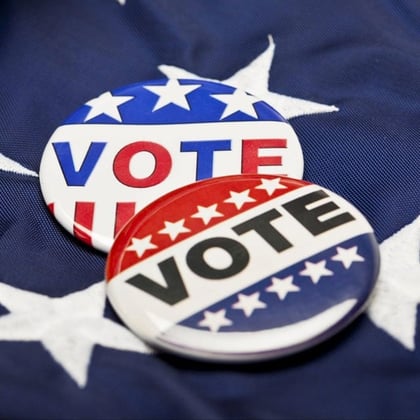What You Need to Know
- One-third of investors believe that the economy will plunge into recession if their favored political party loses power.
- Republicans tend to brace for voting results more than their Democratic counterparts, according to Nationwide.
- Advisors can address clients’ anxiety with solutions that guarantee income in retirement, Nationwide argues.
Forty-five percent of investors believe that the results of the 2024 U.S. presidential and congressional elections will have a bigger influence than market returns on their retirement plans and portfolios, according to survey results released Monday by Nationwide.
In addition, 32% of investors believe that the economy will plunge into a recession within 12 months if the political party with which they least align should gain more power in next year’s federal elections. And 31% said that if that happens, their future finances will suffer and taxes will increase within a year.
“As we get closer to the 2024 election, we’re going to see more messaging and campaign ads that portray worst-case scenarios, creating anxiety in investors that can lead to short-sighted, emotional decisions,” Eric Henderson, president of Nationwide Annuity, said in a statement. “It’s important for investors to not get caught up in the ‘what ifs,’ and instead focus on what they can control.”
Henderson said investors should engage with their advisor or financial professional and set up or revisit a long-term plan to ensure that it remains aligned with their goals regardless of which party takes control after the elections.
The Harris Poll conducted the online survey within the United States during the last two weeks in August among 507 advisors and financial professionals and 2,404 adult investors with investable assets of $10,000 or more, including 464 pre-retirees, those between 55 and 65 years old.
A Look Across Party Lines
Fifty-seven percent of investors in the survey who identify as Democrats said market performance will have a bigger effect on their retirement plans and portfolios than the results of the 2024 elections, compared with 47% of investors who identify as Republicans.
However, Republicans tend to brace for election results more than their Democratic counterparts, according to Nationwide. Sixty-eight percent of Republican investors believe that the outcome of a presidential election will have a direct, immediate and lasting effect on stock market performance, compared with 57% of Democratic investors.
Only 40% investors who identify as independents worry that next year’s elections will influence their retirement plans more than market volatility.
“While it’s natural to feel the party you support will deliver the best economic outcome, history tells us that these instincts can be blown out of proportion,” Mark Hackett, Nationwide’s chief of investment research, said in the statement. “Remember that election results in either party’s favor have historically had little impact on future investment returns.”
It is better, Hacket said, to aggressively filter election news coverage, and stay focused on fundamental drivers of investment performance and leading indicators of economic conditions.
Economic Fears Prompt Changes
As campaigning and political punditry ramp up, economic factors are still top of mind for those saving for retirement, according to the survey.
Overall, 47% of investors who are not retired see inflation, 42% cost-of-living increases and 31% a potential recession as the biggest long-term challenges to their retirement portfolios. To compensate, they are changing their spending and investing habits, including making adjustments to cut spending and ensure a timely retirement.
To save more for retirement in the current environment, 33% of respondents said they are avoiding unnecessary expenses, such as vacations, jewelry and shopping sprees over the next 12 months.








 October 30, 2023 at 03:18 PM
October 30, 2023 at 03:18 PM












 Copyright © 2024 ALM Global, LLC. All Rights Reserved.
Copyright © 2024 ALM Global, LLC. All Rights Reserved.